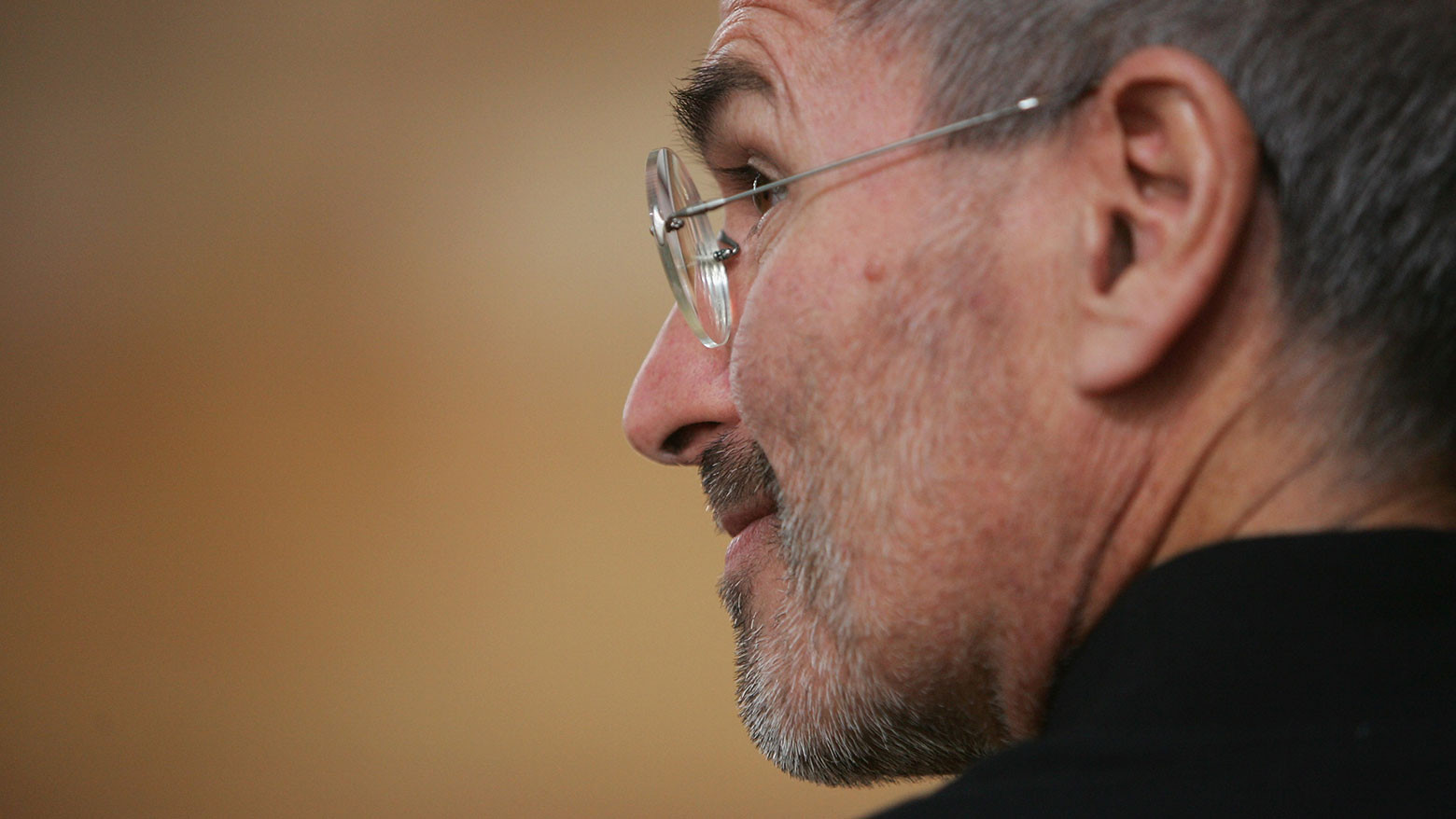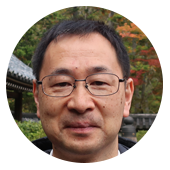Fifteen stones
When it came to Kyoto, Oshima Hiroshi was Steve Jobs' man. Oshima worked as a chauffeur and a tour guide for Jobs on four trips, the last in 2010, just one year before the Apple founder's death. Jobs would arrive with a vague idea of what he wanted to see but left the specifics to Oshima.
Over the years, the two grew close and Jobs gave Oshima his home address and phone number, urging him to call if he ever had the chance to visit the US. Oshima says he would even jokingly ask Jobs to name one of Apple's products 'Hiro.'
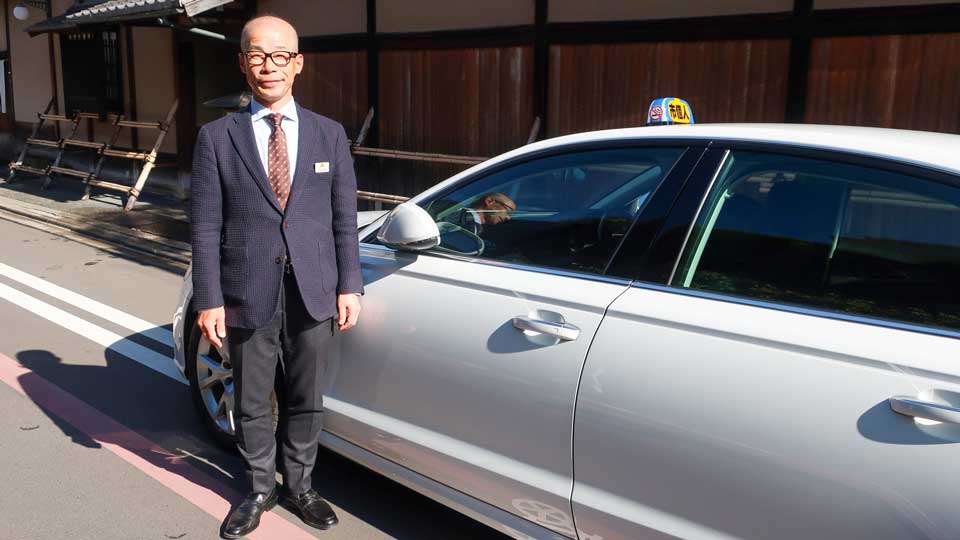
Oshima says one of Jobs' favorite destinations was Ryoanji, a 500-year-old Zen temple known for its rock garden. Oshima took Jobs there three times.
"On our first visit, I told him about the temple's unique visual trick," says Oshima. "The garden has fifteen stones but you cannot see all of them at once from a single vantage point."
Oshima says Jobs immediately checked to see if this was true. He paced around, looking for the perfect spot to view the garden, but couldn't find it.
"Then I explained the significance of the number: 15 means completion. In the past, men were recognized to have reached adulthood at the age of 15. A night with a full moon is called 'Jyugoya', or 15th night. The reason we can't find all 15 rocks is that we're still in a work in process."
Oshima says Jobs seemed to accept this, and nodded, keeping his eyes on the garden. Years later, he brought his children to the temple and told them what Oshima had explained to him.
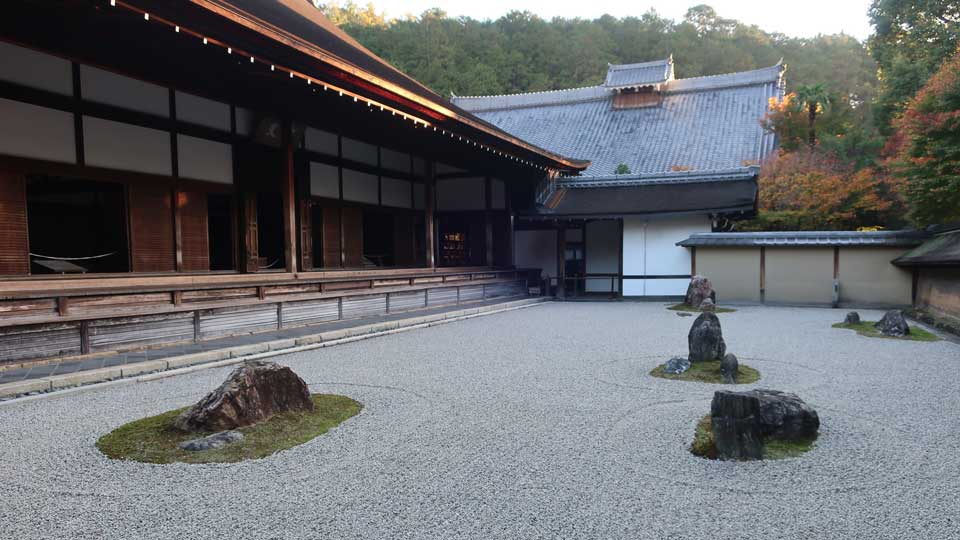
Jobs spoke about the influence of Zen Buddhism on his life in his authorized biography: "I have always found Buddhism, Japanese Zen Buddhism in particular, to be aesthetically sublime. The most sublime thing I've ever seen are the gardens around Kyoto. I'm deeply moved by what that culture has produced, and it's directly from Zen Buddhism."
"I want a garden like that."
In July 2010, Oshima was driving Jobs through an upscale neighborhood near Nanzenji Temple. One particular residence caught Jobs' eye. It was the Nomura Villa, completed in 1928 by Nomura Tokushichi, the founder of Nomura Securities. The residence is known for its pristine garden and has been designated as a national important cultural asset. But it is rarely open to the public.
"I told him it would be impossible to enter but he said he might have a way," says Oshima. "He called his secretary in the US and ten minutes later, I got a call from the Nomura headquarters saying that we had a reservation for a personal viewing the following day."
When they returned, an interpreter was waiting for Jobs. Oshima waited outside in the car.
"When he came back out an hour later, he told me: 'I would like to have a garden like that.'"
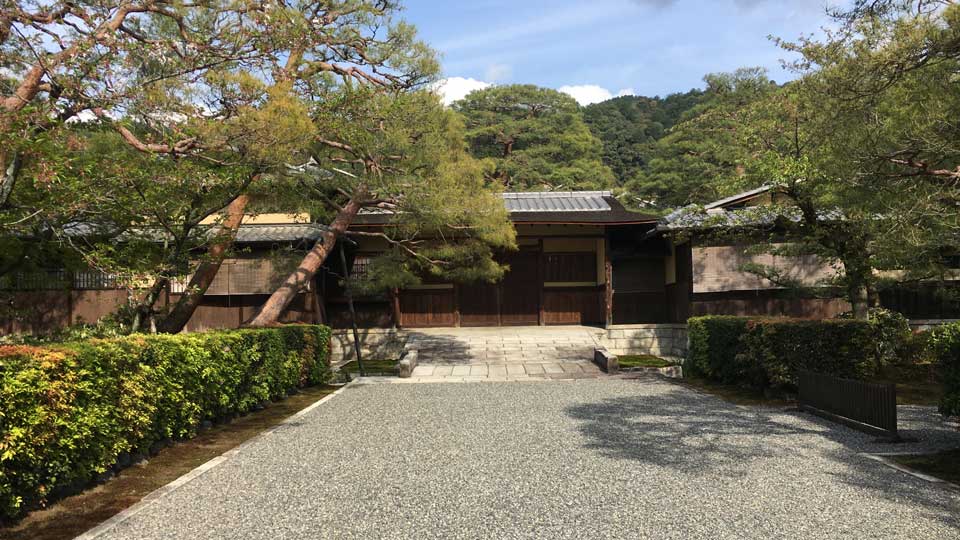
Final lunch
In terms of Japanese cuisine, Oshima says Jobs always loved soba and that his favorite restaurant was Misoka-an Kawamichiya, a shop near the Tawaraya ryokan, where he always stayed during his visits.
"I once tried taking him to a different place but he didn't finish the meal," Oshima says. "He asked me to take him to his usual place to eat again."
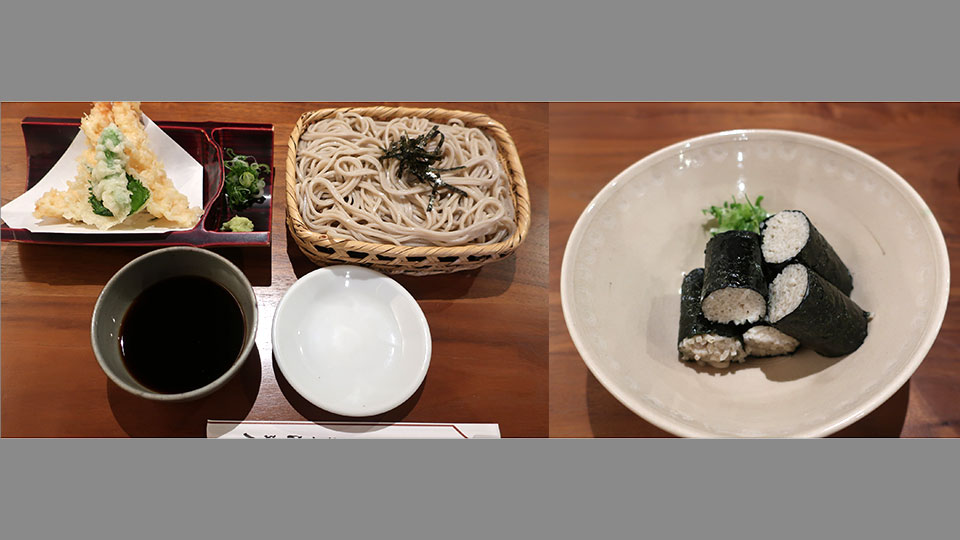
Jobs also loved sushi, and on the final day of his last trip to Kyoto, he took his family for lunch at the renowned restaurant Sushiiwa. While his wife and daughter ordered the course menu, Jobs asked the owner for recommendations.
"He asked me for seasonal sushi," remembers Ohnishi Toshiya, owner of Sushiiwa.
Ohnishi started Jobs off with flounder sushi, then squid and shrimp. When he served toro, the fatty part of tuna, Jobs suddenly went quiet. Ohnishi asked if anything was wrong.
"He asked me what I was going to serve next and I told him I hadn't decided. He told me to keep serving toro until he asked me to stop."
The toro was from Oma Town in Aomori Prefecture. Tuna from the area is popular for its fatty meat. Ohnishi says he served six pieces in a row.
"He told me he had never eaten such delicious sushi," says Ohnishi.
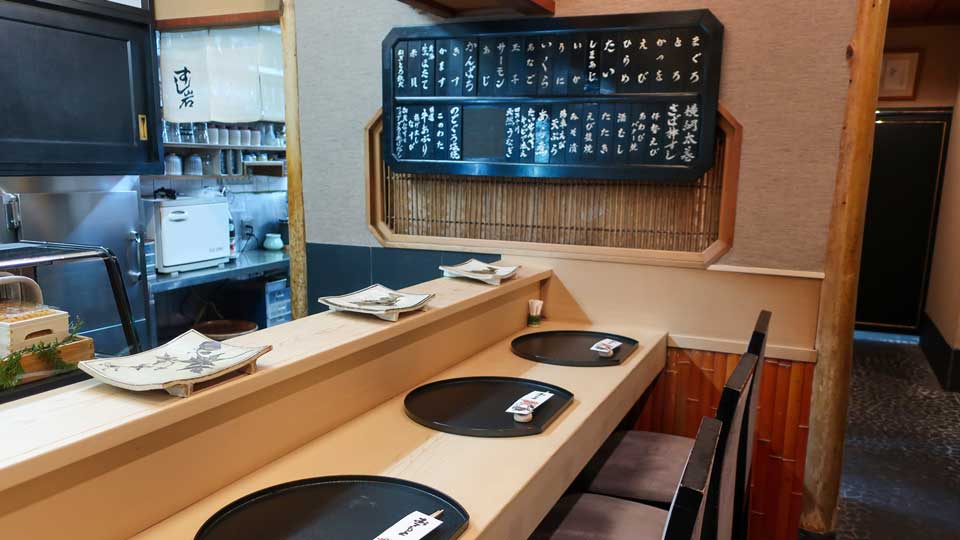
At the end of the meal, Ohnishi asked for Jobs's autograph for his daughter. The Apple founder rarely accepted such requests but, perhaps in a good mood from the meal, said he would be glad to oblige. Ohnishi told him to visit again soon but Jobs said this would be difficult.
"He told me he was suffering from a serious illness and that this could be his last trip to Kyoto. It was shocking to hear. He also asked me to deliver sushi to his home in the US if he couldn't come back to my restaurant."
"All good things"
Jobs' autograph now adorns the wall of Sushiiwa. It comes with a message: "All good things", a shortened version of the saying "All good things must come to an end."
"He might have been aware of when his life would end, since he passed away just one year later," says Ohnishi. "Maybe that's why he chose not to write the whole sentence, and only the first three words."
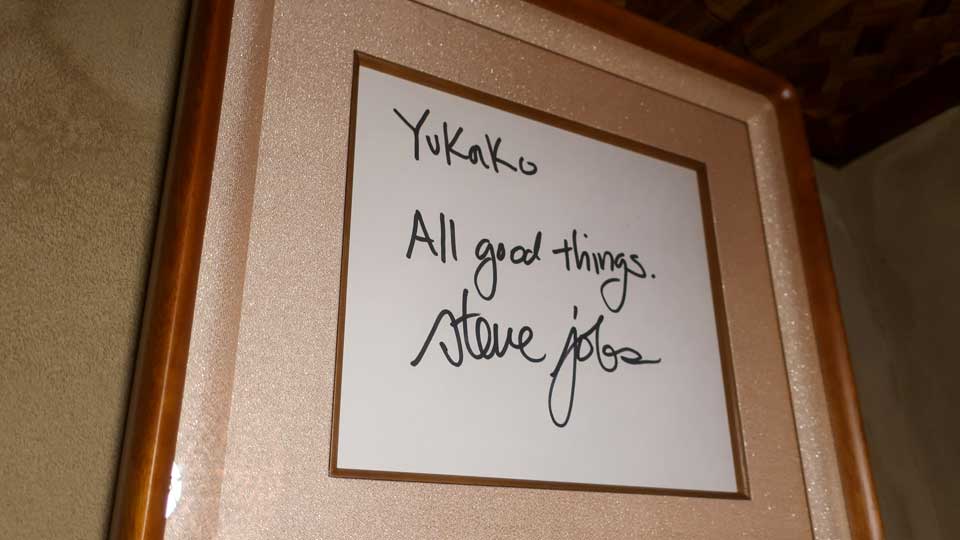
Six years after Jobs' visit, one diner was especially shocked to see the autograph at Sushiiwa. John Sculley joined Apple as CEO in 1983, persuaded to leave his job at PepsiCo by Jobs himself. But the two had their differences, leading to Jobs' infamous departure from Apple just two years later.
In 2016, he happened to stop by Sushiiwa for a meal. Ohnishi told him about his old partner's visit and, despite the difficult end to their business relationship, Sculley broke down in tears.
"He told me that since they were retired from the frontlines of business, they could have enjoyed sushi at Steve's favorite restaurant and had a good time together," says Ohnishi. "But he has passed away and now he's in heaven."
